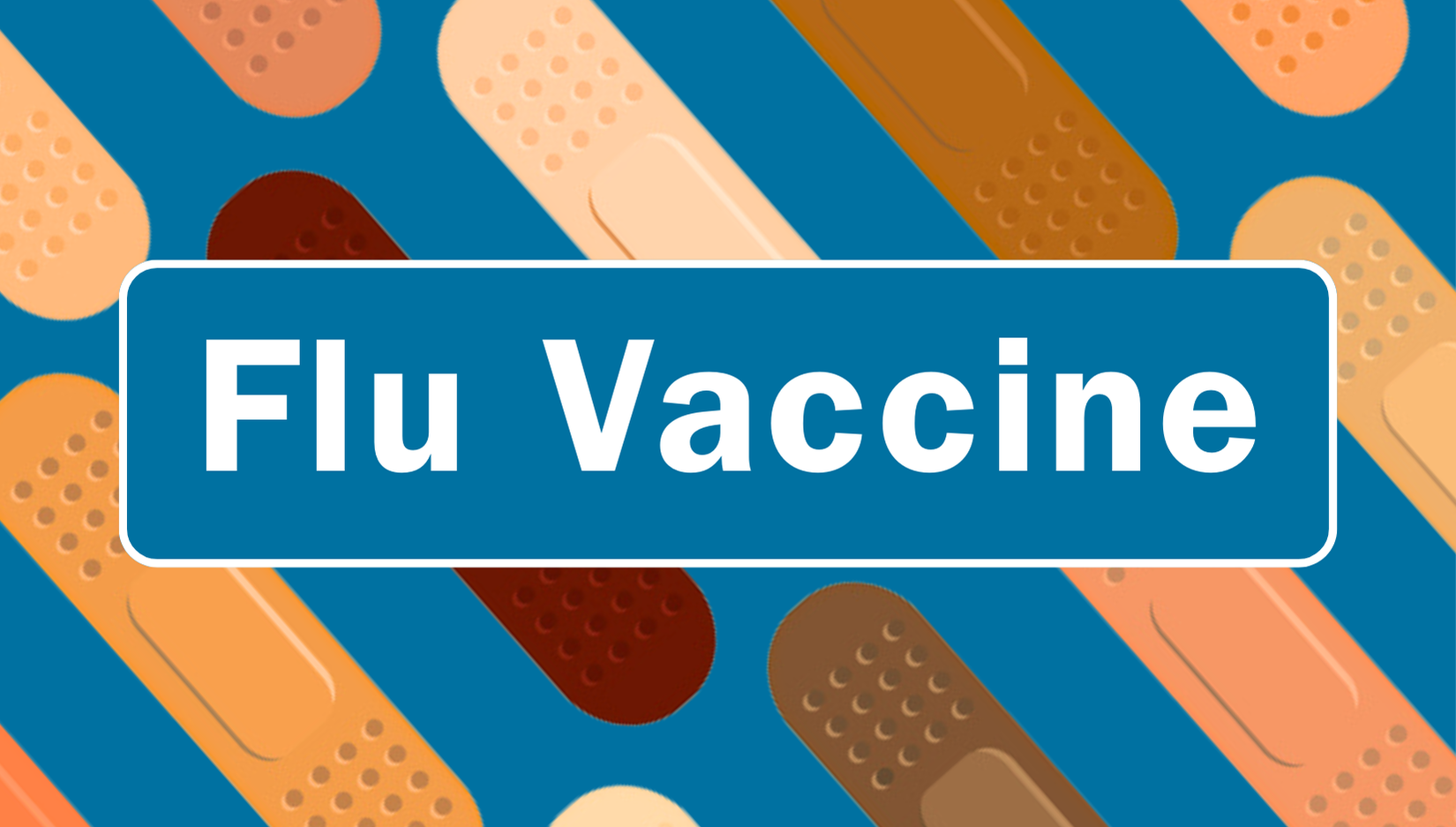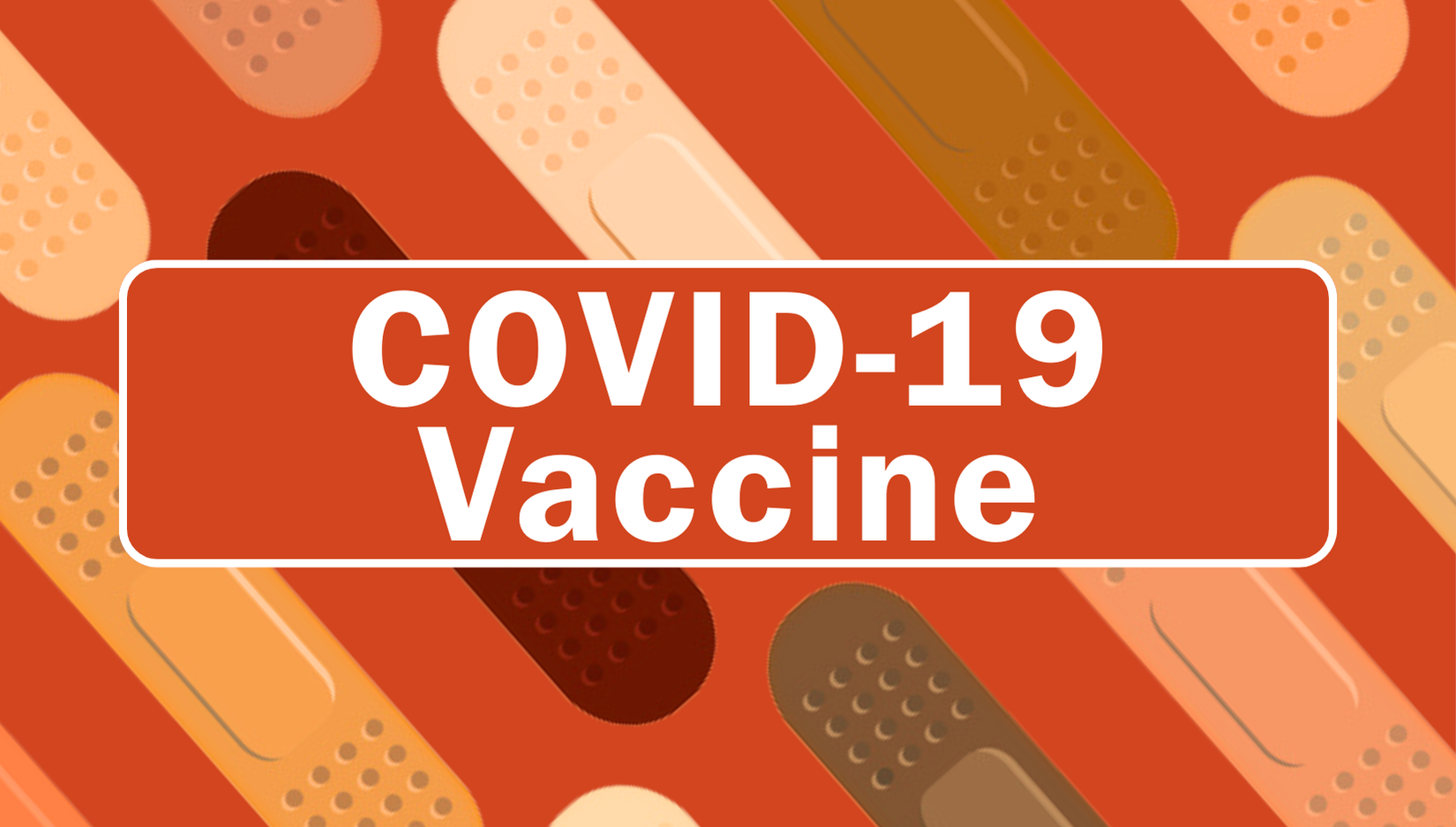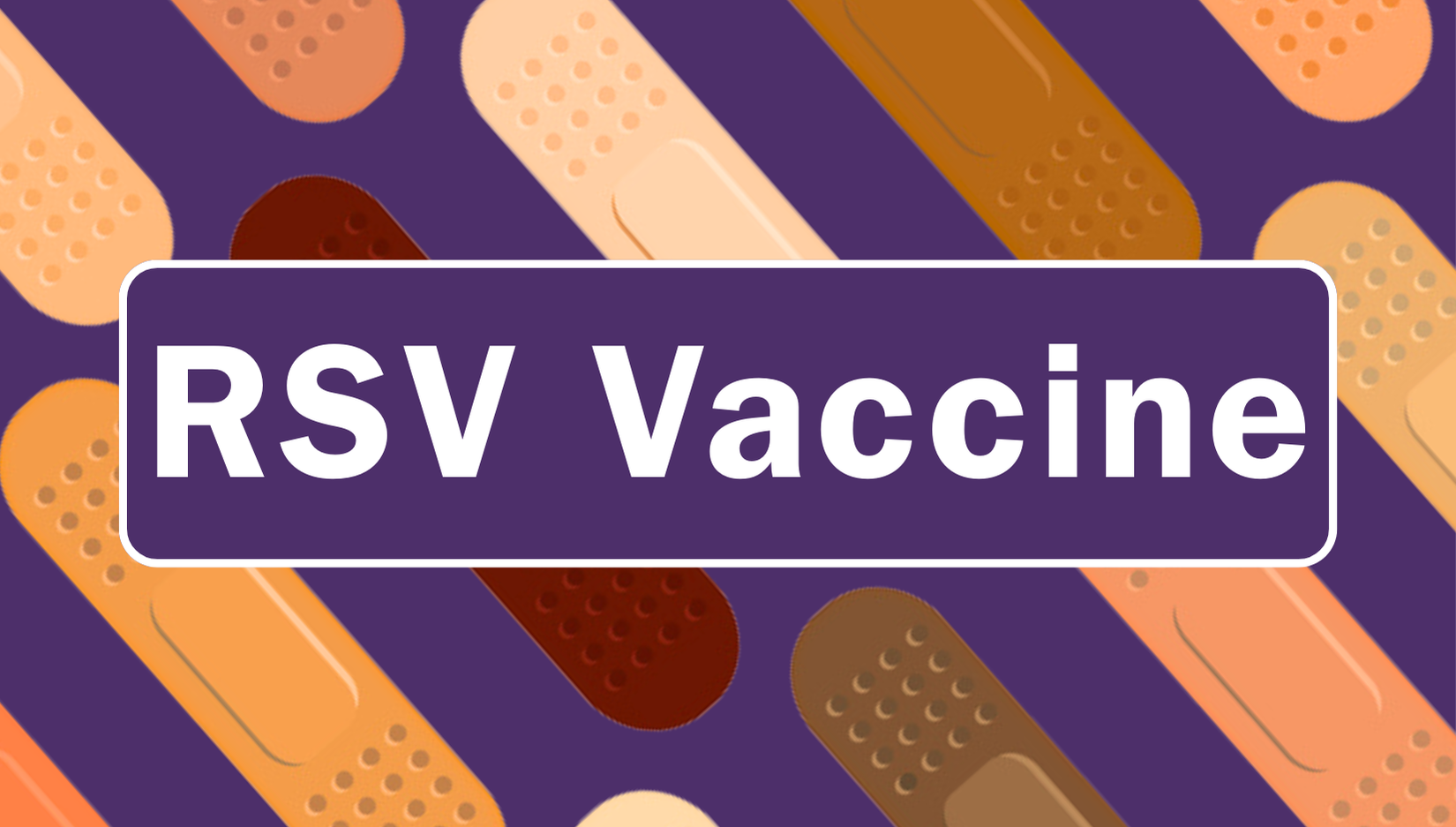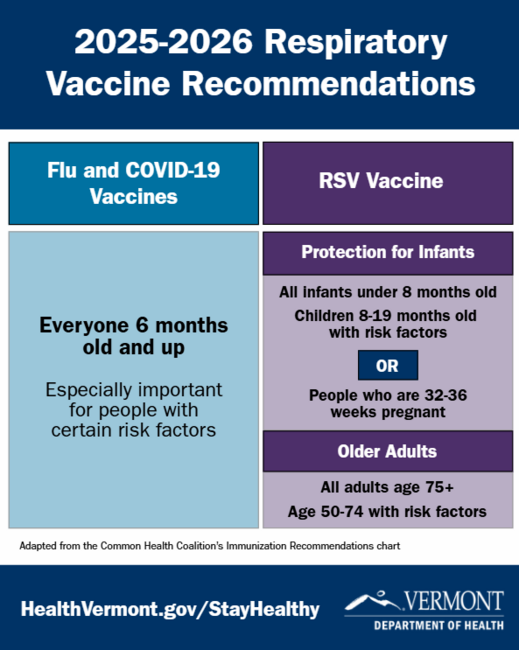Vaccine Access
You can get vaccinated at a pharmacy or a health care provider's office. Call ahead to find out which vaccines are available and to make an appointment. Some pharmacies allow walk-ins, and some provide vaccines for children age 5 years and older.
For most people, your health insurance will cover the cost of getting vaccinated.
If you don't have a health care provider, call 2-1-1 to be connected to care, or contact the nearest federally qualified health center or one of Vermont's Free & Referral Clinics.
If you are under 65 years old and don't have a primary care provider or health insurance, you can get vaccinated for free by appointment at your local health office.




